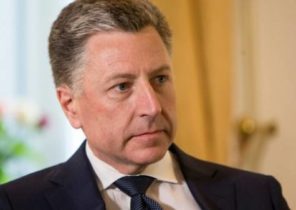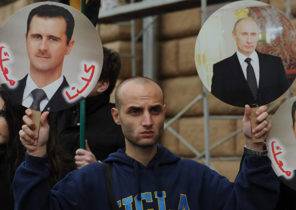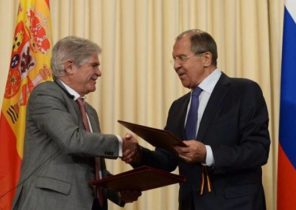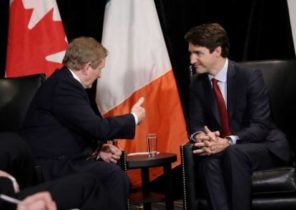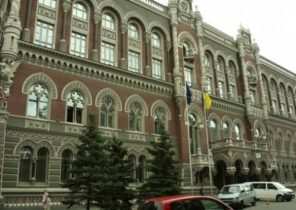The relationship between Ben and Abby Rosenberg developed the old fashioned way. It’s not about their first meeting, which was virtual and occurred on the Jewish Dating website Jdate, and the courtship that took place mostly in writing. Both at the time lived in new York, but when Ben sent Abby’s first message, she worked as an event planner, was on a business trip, opening a restaurant in Miami. Then Ben went to stay with relatives in Israel. They exchanged messages on the website, and then switched to email, SMS communication via Skype. Finally, they began to simultaneously watch the TV show “the Colbert Report”, talking this time on the phone. Abby recalled that at the time of the first personal meeting they “have been friends, relatives have come to fall in love with each other.” Ben stopped his car in the Brooklyn Park, Fort Greene, and Abby sat on the passenger seat. They held hands and talked for so long, the car engine stalled.
Three years later they got married and tried to have children. At the time they were 38 years old. The desire to have children came to them suddenly. Small, frail and dark-haired Abby was organizing events in fashion and shopping center “Chelsea Market” in Manhattan. Ben, whose close-cropped beard, was led in Queens a small real estate company. According to Abby, their friends had babies. “Suddenly we realized that this would be our next step — to become parents,” she said. But Abby couldn’t get pregnant. She had medical problems. She removed a fibroid of the uterus, and she underwent a course of fertility treatments, but to no avail. She tried artificial insemination. It was endless doctor visits, constant monitoring of ovulation, causing the frustrated phone calls. Finally, they gave up. “I thought I should just forget about it. But I wanted to be a mom. And we decided to go up for adoption,” said Abby.
A friend brought them to a Texas adoption Agency, and in one weekend they went to an information session. There, they learn how complicated this procedure. Among other things, with an open adoption there was a rule that the biological mother chooses the adoptive parents. In some agencies all of this is served in the wrap of the Christian belief, where the main thing — the fight against abortion. They watched a video in which a crying young girl gave her baby to adoptive parents. When the Rosenbergs came back home, Ben said, “No, that’s wrong. Let’s not to do that.” But they wanted to have a baby, and what to do next, they didn’t know. Their doctor once recommended a gestational surrogate pregnancy. When it hired a female is carrying their biological child. But such a procedure cost more than a hundred thousand dollars, and it was unaffordable. The sister of a friend has agreed to bear a child for a nominal fee of twenty thousand dollars. They went to new Mexico, where lives the woman to undergo medical procedures. But the implantation of two embryos failed.
Once after a trip to Texas Abby held the event at the “Chelsea Market”, and one of the guests, talkative Latvian, told her about friends who have a child from a surrogate mother from the Ukraine. There this procedure is many times cheaper than in the US. Abby listened to him very carefully. She grew up in Massachusetts, but her family was Ukrainian roots. “My mom always made chicken Kiev,” she said. The woman joined a group on Facebook called Intended Parents Surrogacy Support Ukraine. She found that there exchange information pairs from around the world — from India, Australia, Britain. A few weeks later, the Rosenbergs created in a small the reproductive Agency of Ukraine, which is called “a New hope”. It found for them by a surrogate mother, thirty year old woman from-under Kiev. According to Abby, this woman once nurtured the child to the Agency. “I was encouraged by what she decided to do it a second time,” explained Abby. In August 2019, the woman became pregnant and began to carry the child of the Rosenbergs. It was a girl they decided to call the Odessa after the Ukrainian city and a hero of Homer’s “the Odyssey”. Personally, women had not met even once, but they became friends, communicating on Facebook. They sent each other pictures of their cats and mothers who in that year died. Abby told me that they both cried during intercourse.
Odessa was born on April 24, the Rosenbergs decided to come a month before to prepare. In March the Newspapers were full of headlines about covid-19. Abby and the surrogate mother began to share worrisome information. “I am very worried about you,” wrote Ukrainian, after seeing the news about the virus in new York. But the planes between new York and Kiev is still flying and no one knew how serious the situation is. Abby said, “We thought we can do it all”. But it did not. Mass events are staged Abby, was banned. 9 Mar fired Abby and all her team. This was done shortly before the city introduced a decree of isolation. Foreign countries began to impose restrictions on flights. “We looked at it in amazement,” said Abby. On 15 March, the Ukraine has closed its borders. Flights to Kiev cancelled.
The Rosenbergs began in despair to write Julia Osievsky, which directs “New hope”. But she, like everyone else, was in disbelief. According to her, she, on behalf of the Rosenbergs contacted the Ukrainian Ministry of foreign Affairs, and the first thing I heard Osievsky from the officials was: “Maybe we will open the borders. But in September”. What started as a small tragedy — the Rosenbergs could not make it on the day of the birth of his daughter — began to seem a disaster. In accordance with the Ukrainian legislation, healthy babies can be in hospital no longer than 28 days. Osievsky was ready then to take the Odessa home, but the hospital said it can give only legal parents. Head of the hospital suggested another variant: at the expiration of the term to translate Odessa to the nearest orphanage. The hospital had intended to allocate a separate wing where the nurses tending babies born to surrogate mothers. And no visitors from covid-19. “That’s when I started crying, told me Abby. We thought, what is this orphanage?”
The Rosenbergs were not alone. When the pandemic began to spread, and closed borders, parents around the world have found themselves suddenly cut off from their newborn babies that were actually their biological children. Commercial surrogacy is gaining popularity due to the coincidence of several factors. It advances in reproductive technologies, the wave of laws restricting adoption and extension of rights of homosexuals and the fact that in developed countries women start to give birth much later, which they have more problems with reproductive function. But in most countries, commercial surrogacy is outlawed, including in almost all of continental Europe. Opponents of this practice claim that surrogate mothers are easier to expose exploitation, particularly if they are poor. And this creates certain risks for children. (Some countries, such as Australia and Britain, allow surrogacy if it is done not for money.)
As a result, every year thousands of couples wishing to become parents, go abroad in the few countries where surrogate pregnancy is permitted by law. One of the main such places are the United States, where there is the most modern reproductive technology and apply the most liberal laws. There and same-sex couples, and unmarried people can get a baby from a surrogate mother. But the price is just out of reach for many, and therefore Ukraine in the last decade has become a cheaper alternative. Ukrainian surrogate mother give birth every year several thousand children, and most of them have foreign parents. In this country, about 50 of reproductive clinics and a variety of agencies, the mediation function and looking for suitable surrogate mothers.
Coronavirus cause chaos in this system. We have no official figures showing how many children in the world was in such a difficult situation. A lawyer from Oregon, Robin Pope (Robin Pope), representing the interests of potential parents, believes that in the United States into such traps were at least 200 children, is looked after by an improvised network of surrogate mothers, caregivers, relatives and just compassionate people. She told me that the son of one of her Chinese customers still cares for his surrogate mother. “Dad can’t fly, and his child for almost five months,” said Pope. According to the Ukrainian Commissioner for human rights, from the beginning of the epidemic in Ukraine is stuck, at least 125 children.
This issue came to the fore when the largest reproductive Agency of the country “Biotechna” has published a video in which 45 crying babies lie in a row on the trucks under the chandeliers of a hotel ballroom. This company has turned its hotel into a giant nursery for children waiting for their parents. Between them walks a group of nurses who feed and lull newborns. “We show children to parents online, and our managers will organize a videoconference, says over one of the nurses. It hurts to look at how parents miss their children”. This video provoked in Ukraine a fierce debate about the industry of surrogacy. Some politicians demanded to ban the provision of such services to foreigners. Ukrainian Ombudsman for children’s rights Mykola Kuleba has complained that Ukraine has become “an international online store selling children.” This video renewed criticism of “Bioteam”. The company was involved in one scandalous case, when the parents of one newborn left the child in Ukraine as it revealed problems with health. In 2019, a Director of the company albert Toczylowski briefly put under house arrest when in his address sounded the charge in child trafficking, document forgery and tax evasion. (A spokesman for the company noted that Directors are not condemned, saying: “He was charged, but the investigation found no evidence”.)
The Director of the Agency “a New hope” Oseevsky was horrified by this video. “The image of this industry is really very bad,” she told me. The Agency Osievsky much less than “Biotechna”, but the situation in her company developed is depressing. In addition to Odessa, Osievsky responsible for four children, which was to convey to parents in April and may. Now it can take months before parents will be able to pick them up. “It was a nightmare, she said. — I wanted to die.” She was uncomfortable hiring nurses to care for these children, as did some Agency. “What if there is a medical problem, or God forbid, the child dies?— she said. — Who’s responsible?” She suggested a backup plan. If the Rosenbergs would not be able to come to Ukraine in the next 28 days, it will give Odessa from the hospital in Kiev state hospital. It was not much better than an orphanage. Pediatrician Marjorie Rosenthal (Rosenthal Marjorie), working at the medical faculty of Yale, told me that most of the children spent in the hospital or in the nursery a few weeks or months, “will certainly be in order, especially if then goes home to loving parents.” But the brain of a newborn child develops through communication with caring for them man. “Everyone is concerned that if one caregiver has too many children, and their needs are not being met, or they don’t communicate, that increases the risk of developmental problems,” said Rosenthal.
On Facebook, the parents began to share the panic message. The first obstacle in their way was bureaucratic: to obtain a visa for entry to Ukraine in the conditions of closed borders. The task was complicated by the fact that some countries, say, Australia, with the start of a pandemic have closed their visa office. It was difficult to organize the trip and those parents whose countries oppose commercial surrogacy. The Rosenbergs had this problem, but they still find it difficult to overcome the travel ban. In April they began continuous night duty to call to the us Embassy in Kiev at the time of its opening. Diplomats sympathized with them, but great help from them they never saw. “They really just didn’t know what to say to us,” explained Abby. Then Rosenberg has expanded its efforts and began to contact “to all who knew someone in government.” Friend, who at one time worked for Senator Chuck Schumer; the colleague is somehow associated with Chelsea Clinton; relatives of Ben, who claimed that they lobbied Jared Kushner. Over time, they regretted the employee from the office of Congressman Sean Patrick Moloney that their name began to ring in various state institutions.
The next problem were managerial in nature. Even if the Rosenbergs got all the necessary paperwork, they still had no idea how to get to Ukraine. Commercial flights to this country and it was not. One Swedish couple from the Facebook group, Anneli and Navid DIL, made national news program and said that they can’t get to your child. A rich Swede heard this story and rented to them on a private jet. Abby said that once they got in touch with wealthy relatives of Ben from Israel, who enthusiastically told of flying in a private plane during a pandemic. “They said, “Just do it, nothing easier! It costs 20 thousand dollars. We just flew to a wedding in Kiev!”” — said Abby. Unfortunately, rent an aircraft for them, these relatives are not invited.
Finally, the Rosenbergs heard about the man who could help them. It was an Australian named Sam Everingham, who heads the Sydney-governmental organization “Growing family”. Usually Everingham holds conferences for people interested in surrogacy abroad. But in that time he has worked as an informal agent travel for the desperate parents who tried to get their children to Ukraine, Georgia, Canada, Mexico, Colombia and the United States. One couple from Australia in February, he flew to Tbilisi together with his one-year old child to be present at the birth of their triplets from the Georgian surrogate mother. When you have a pandemic, this pair for three months stuck in a rented apartment along with all four kids, trying to obtain birth certificates for his triplet in closed state institutions. According to the rules, every newborn must be accompanied by one adult, but their relatives could not arrive from Australia to help. They found another Australian couple flying from Tbilisi to Melbourne, who agreed to go along with their children. “These people spent two days in the air with our babies in his arms,” told me a mother of triplets.
In comparison with Georgia in Ukraine, everything was easier. Everingham told the Rosenbergs that although the aircraft in this country do not fly, the output is still there. Ukraine has a common border with Belarus, which during the pandemic became something of a European entrepôt. Authoritarian President Alexander Lukashenko refused to take preventive measures to combat the spread of coronavirus. While playing hockey at the audience filled the stadium, he said to one reporter: “there are no viruses. You see, as they fly around? I do not see”. He then advised his citizens for the sake of health to go to the bath and drink “40-50 milliliters of vodka every day.” (The number of cases covid-19 in Belarus subsequently increased dramatically.)
Parents it was profitable. Ukraine has left open several checkpoints on the border. Everingham sent their clients to Minsk, they spent the night in the Belarusian hotel, and the next day drove the car to the border. There, having received the necessary permission, they drove on the Ukrainian territory. But there was one catch: the taxi drivers could not transport them across the border. Customers Everingham had to walk one kilometer on the neutral zone on the border between the two countries. It was a tedious journey, however, according to Everingham, as the Ukraine has got many of his clients. For organization of this visit, the Rosenbergs paid him two thousand dollars. Before them on this route passed another American group on Facebook. It was Joel Lance from Loomis, California, whose third child was to be born in Ukraine from a surrogate mother at the end of April. 15 APR Lance wrote to Rosenberg in an email that he successfully entered the territory of Ukraine. He was carrying a baby supplies and a large amount of cash for a surrogate mother, which he stuffed in the secret pockets, socks and underwear. And he took with him “a big knife, just to feel more confident”. He managed to get to the hospital by the time of the birth of his daughter. His wife, Michelle, told me: “We love adventure, but my God, it was our biggest gamble.”
Early on the morning of 25 April, the Rosenbergs came out of his apartment in Fort Greene on the streets of the empty city. The pandemic was closer to the peak. Like most new Yorkers, they very rarely left his house. “I was afraid to even go out to exchange money for stuff that is needed to pay for the washing machine in my house,” said Abby. But they had to catch a plane. Odessa was born a few days before, April 21. From time to time they took out their smartphones to see the photo sent to them Osievsky. Did the nurses from the hospital. “They tied it on her head, a small scarf,’ said Abby. She looked like a tiny grandma.”
Just a day before departure the Rosenbergs received the email with the coveted document. It was a letter of the Ukrainian Ministry of foreign Affairs, which gave them permission to enter the country through Belarus. Few Americans could obtain such permission, and when they arrived at the airport of a name of John Kennedy, an employee of the airline “air France” several times called somewhere, before you can register them on the flight. First they flew to Paris in an almost empty plane. At the airport of Charles de Gaulle were walking people in protective medical suits. But the plane in Minsk was crowded with cheerful Belarusians, who, like their President, were not thinking about the virus, and cheerfully and loudly talking to each other. “It was like a family dinner, which we were not invited,” said Abby.
One of the drivers Everingham met them in Minsk and taken to the border with Ukraine in Nova Huta, where, surrounded by dense forests is a military checkpoint. Gates at the border were closed. On the post were soldiers with dogs-bloodhounds. The driver landed Rosenberg a few meters from the gate, where they joined a small group of people, hoping to cross the border on foot and get to Ukraine. Several Eastern Europeans before them launched back. The border guards checked the documents of the Rosenbergs: a letter with the entry permit, passport, copy of marriage certificate. After that they missed. They headed on foot through the empty highway in the direction of Ukraine, pulling suitcases on wheels. This couple was like the tourists trapped in the future after the Apocalypse. In the trees, voices of birds. Under his feet crunched gravel. They put on surgical masks, and the patch pockets of Ben’s pants were lying thick wads of money to surrogate mother — $ 75,000.
Ukraine imposed a mandatory quarantine, according to the rules which people had to download a special application so that the authorities could track their movements. The Rosenbergs had two weeks to sit quarantined in a rented apartment in Kiev. Sunday 10 may is celebrated as mother’s Day, they took a taxi and went to the hospital. Two of the Ukrainian nurses rolled out the pink cart, on which lay Odessa. She was three weeks. The child was wrapped in a white diaper, and on his head the girl had a pink cap. Odessa looked around the room. “That’s our baby,” said Ben. Abby told me that during these trials she chose not to think too much about her daughter. “I had some distance from it, as otherwise it could just go crazy, she explained. — As soon as I saw her, the missing pieces in the puzzle. We got my daughter. Now we can breathe a sigh of relief”. 10 days later the Rosenbergs together with her daughter flew from Odessa to Kiev one of the first commercial flights. On the plane they saw Joel Lance, who was returning home with her baby and named Amberen.
In the last weeks of the epidemic, the crisis began to wane. The Ukrainians opened its borders to foreigners, and on June 10, the Ukrainian Agency “Biotechna” organized a press conference, inviting the cameramen, who captured the 11 couples from Spain and Argentina, met their newborn children at the hotel “Venice”. American lawyer the Pope said that many of her clients came to the United States, took their children, but home can’t go back, because they have no passports for newborns. The state Department received a huge number of applications and does not have time to consider them and to handle. “I tell people that they have to wait up to six months,” said Pope.
Today, Everingham helped 50 couples to have their babies. He is still scared to call parents, especially Americans, due to high level of morbidity in the United States is prohibited to go abroad. “Cross-border surrogacy has always been risky from the point of view of logistics and the law, he said. And covid-19 only further aggravated the situation.” He hoped that the crisis will force the authorities to review laws on surrogacy. “We would like to pass laws that deal with surrogacy in the country because then there is no need to travel outside the country,” he said Everingham. But if such laws will not, people who want to become parents, they will still go abroad, despite the risk. He’s already started a side business, organizing the sending of embryos for couples who hope to begin this process this summer. Everingham told me: “I have always been struck by the difficulties ready to go people for the sake of the family.”
The Rosenbergs spend this summer in the area great Neck parents Ben. Recently Odessa began to smile. “She has such long fingers and feet — said Abby. — It is very noisy and eats for two.” They don’t know how will continue to arrange their lives — will they continue to live in new York to return Abby to his work. But the Rosenbergs hope someday to spend vacation in Ukraine with her daughter. They want to visit in the city of Odessa and visit the surrogate mother of his child, which support the connection. “We’ll be back,’ said Abby. — We need to see people. We still have unfinished business there”.

